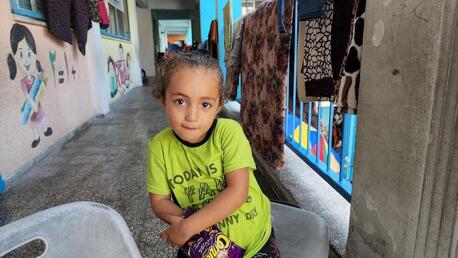
Children Trapped in Gaza Conflict Face Generational Trauma
As intensive bombardment continues, UNICEF and partners remain on the ground in Gaza, working to save children's lives and protect them from lasting psychological damage.
The ongoing conflict in the Gaza Strip is exposing children to physical danger along with devastating emotional and psychological harm, UNICEF Executive Director Catherine Russell warned the United Nations Security Council in a briefing on Oct 30.
"Children in both Israel and the State of Palestine are experiencing terrible trauma — the consequences of which could last a lifetime," said Russell, urging the Security Council to pass a resolution reminding parties of their obligations under international law and calling for an immediate ceasefire, along with unrestricted humanitarian access and the safe and immediate release of all abducted children.
Children in both Israel and the State of Palestine are experiencing terrible trauma — the consequences of which could last a lifetime. — UNICEF Executive Director Catherine Russell
"After little more than three weeks, the devastating tally is quickly adding up, with rampant grave violations being committed against children," Russell said. "According to the Palestinian Ministry of Health, more than 8,300 Palestinians have been killed in Gaza, including over 3,400 children ... with over 6,300 children injured. This means that more than 420 children are being killed or injured in Gaza every day — a number which should shake each of us to our core."
Recent air strikes on the Jabaliya camp, the largest of Gaza's eight camps for the internally displaced, are adding to the number of dead and injured. Refugee camps, settlements for the internally displaced and the civilians inhabiting them are all protected under international humanitarian law; parties to conflict have an obligation to respect and protect them from attack.
Israeli sources report that at least 1,400 people in Israel have been killed, and more than 5,431 injured. According to Israeli authorities, 224 Israelis were abducted on Oct. 7, including at least 20 children.
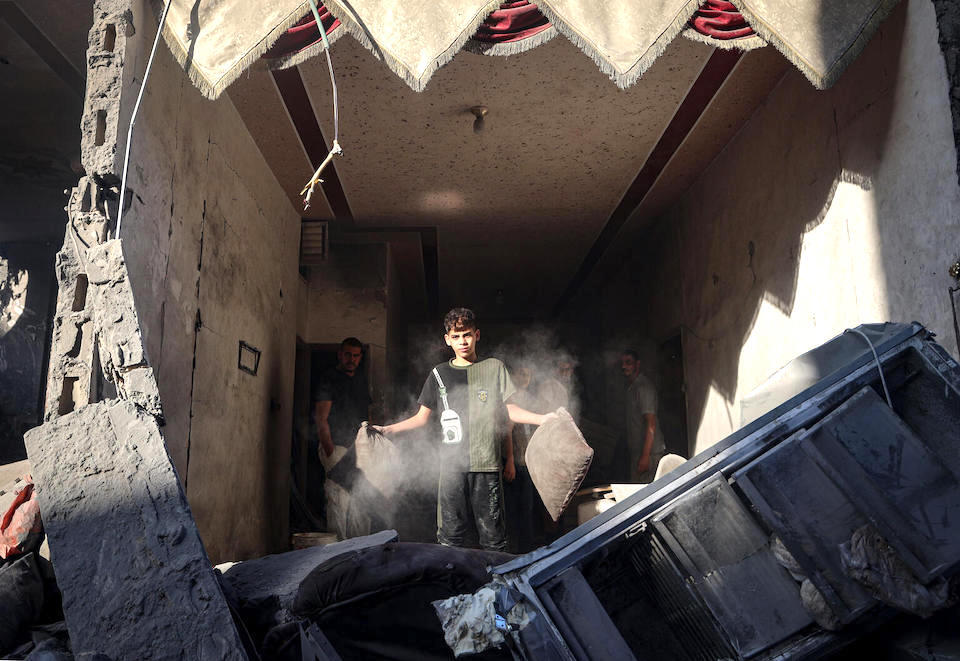
UNICEF and partners are pressing for more access to deliver urgently needed water, medicines, health care and essential services
Since the escalation of the conflict on Oct. 7, the number of humanitarian aid trucks allowed into the Gaza Strip has been severely restricted; as of Oct. 31, only 217 trucks had been cleared for entry. UN officials say at least 100 trucks a day would be required to cover urgent needs.
So far, UNICEF has moved 25 trucks into Gaza via the Rafah Crossing with supplies including hygiene kits, bottled water for 55,000 people and medicines and medical consumable kits delivered to Nasser Hospital in Khan Younis for an estimated 165,000 people. UNICEF continues to pre-position additional emergency supplies in Egypt and to press for safe, sustained humanitarian access to deliver vital assistance to children in need.
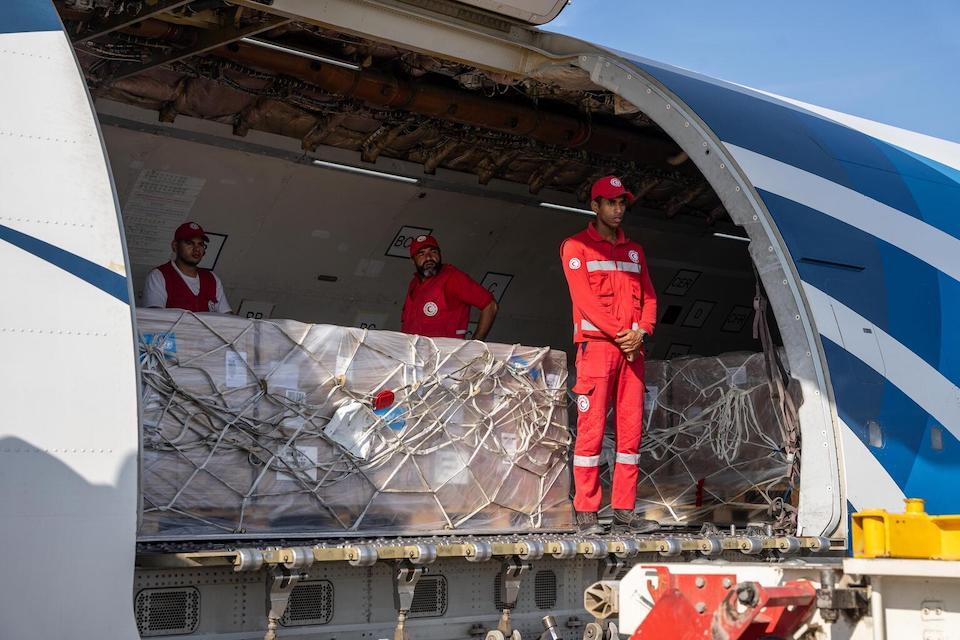
Lack of clean water and safe sanitation reaching catastrophic levels
Attacks on civilian infrastructure and lack of fuel have crippled water networks and sanitation facilities in Gaza. As the situation deteriorates, UNICEF continues to lead the Global WASH (water, sanitation and hygiene) Cluster, coordinating with 68 humanitarian partners to support water service providers in the gradual restoration of water supply production and wastewater treatment to meet critical lifesaving WASH needs. UNICEF has distributed 4,500 emergency family kits, resulting in the production of clean water for drinking and domestic needs benefitting 1 million people in the Deir Al Balah, Khan Younis and Rafah areas, including more than 560,000 children.
UNICEF has also provided cash payments, redeemed through mobile agents including grocery stores, to help more than 22,000 people, half of them children, afford basic necessities such as water, food and hygiene products, and is working with partners to support the delivery of health services in both northern and southern Gaza.
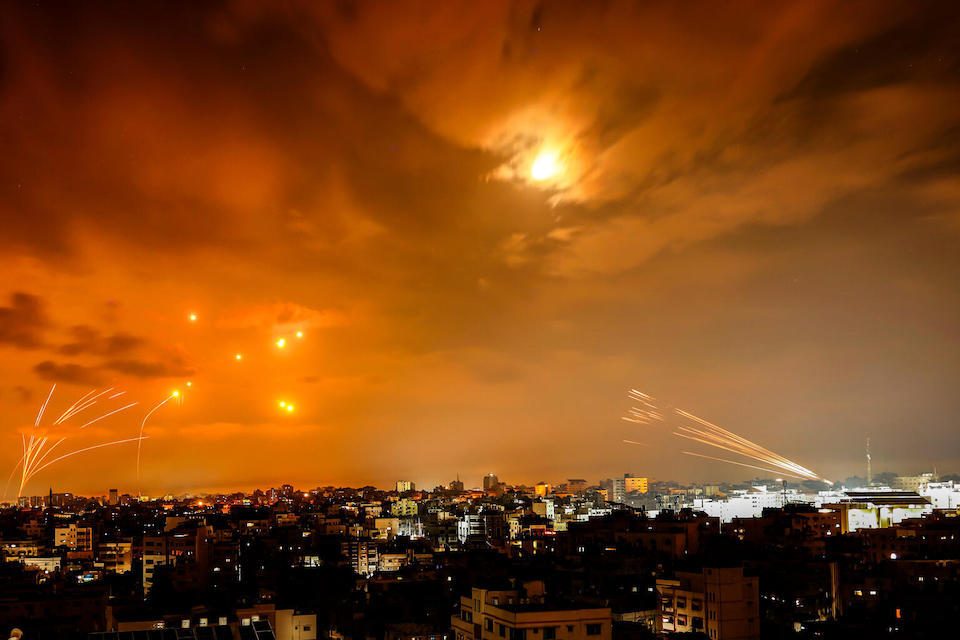
UNICEF is supporting psychosocial and child protection services for children surrounded by violence
UNICEF continues to work with partners to provide psychosocial support and child protection services to children including:
- scaling up the capacity of an existing helpline to respond to the psychosocial support needs of hundreds of people in the Gaza Strip and the West Bank including East Jerusalem
- distributing 366 recreational kits containing playthings and sports equipment for 1,729 children across seven governorates in the West Bank
- supporting four child protection and mental health and psychosocial support partners to reach 1,904 caregivers (706 mothers) with psychosocial services and 2,269 conflict-affected children (874 girls and 1,395 boys) with child protection services including psychosocial support, individual and group counseling and psychotherapy
- working with a local partner to reach approximately 3,000 internally displaced children in 15 shelters in Deir el Balah and Rafah with daily recreational and psychosocial support services including storytelling, play, movement, sports, drawing, expressive arts, psychological first aid and mine safety awareness
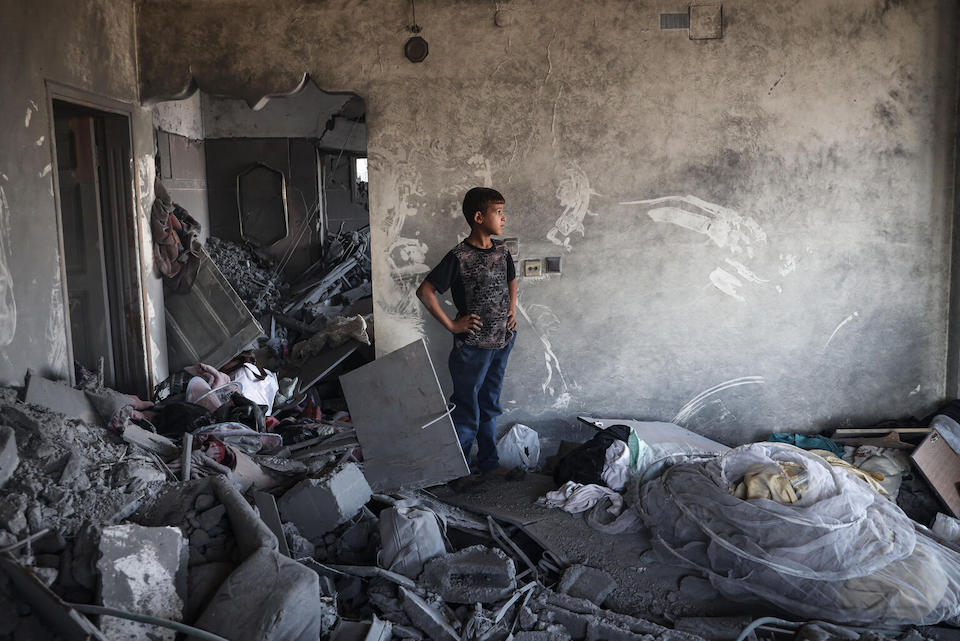
Internally displaced children and their families are trapped in Gaza with nowhere to turn
Even before the start of the recent unprecedented hostilities, an estimated 800,000 children in Gaza — three-quarters of its entire child population — had already been identified as needing mental health and psychosocial support.
Since early October, 625,000 children enrolled in schools across Gaza have had no access to education. At least 221 schools have sustained damage from aerial attacks — over 40 percent of all schools in Gaza. Twelve of Gaza's 35 hospitals — which are also being used as shelters for displaced people — are no longer functioning; nearly two-thirds of primary health care clinics have shut down due to damage.
An estimated 1.4 million internally displaced people — more than half the total population — are staying in shelters, hospitals and public buildings or with host families. With borders closed to all but a handful and movement limited, there is nowhere safe for them to go. Overcrowding in shelters and a lack of food, water and privacy are causing serious health and protection concerns, particularly for women and children.
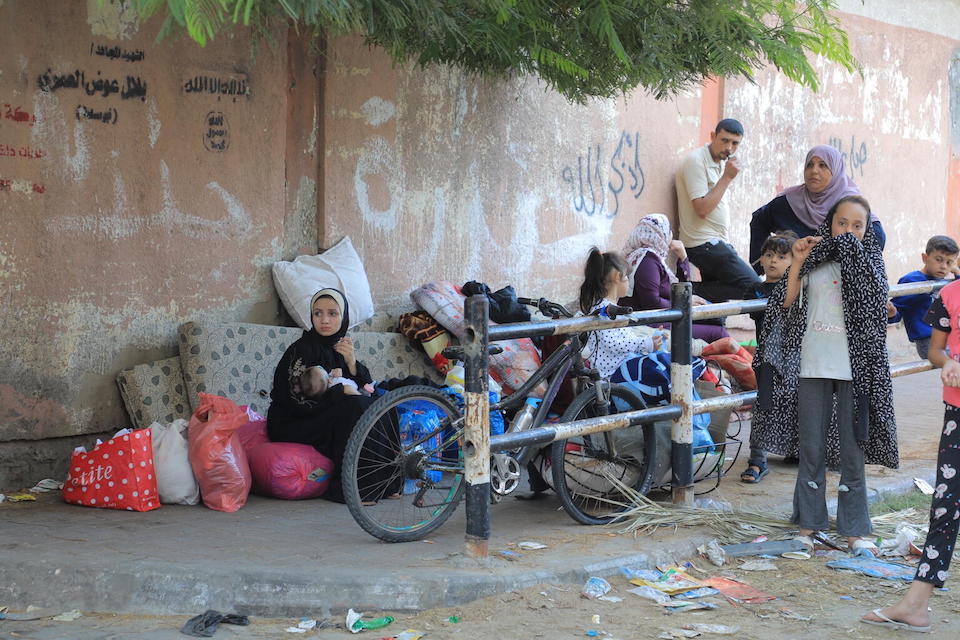
Children under constant bombardment are showing signs of severe psychological distress
Families in Gaza are facing an almost complete electrical blackout due to fuel shortages. With water production capacity reduced to just 5 percent of normal daily operations, according to the Palestinian Water Authority, people have resorted to boiling dirty water, increasing the risk of waterborne disease outbreaks, and drinking seawater, which causes severe dehydration.
Nesma, one of several dozen UNICEF colleagues who have remained at their posts in Gaza with their families, said on Oct. 29 that her daughters, 4-year-old Talia and 7-year-old Zain, are begging for drinkable water and showing signs of severe psychological distress and fear. "It breaks my heart to see children around me strive for a cup of clean water and cannot find it," she said. "Zain keeps asking for regular [not salty] water." Talia has been pulling her hair out and scratching her legs until they bleed.
I keep telling myself, 'Nesma, keep them alive.' — Nesma, a UNICEF staff member and mother of two young daughters in Gaza
"Since the seventh of this month, my mission in life has become to keep them alive," Nesma said. "I don’t have the luxury to think about my children’s mental health. As a humanitarian worker, I feel absolutely helpless as I cannot provide for my kids with the basic needs of life, let alone the children of Gaza. I keep telling myself, ‘Nesma, keep them alive.’ And when all of this ends, I will provide them with mental support and medical care."
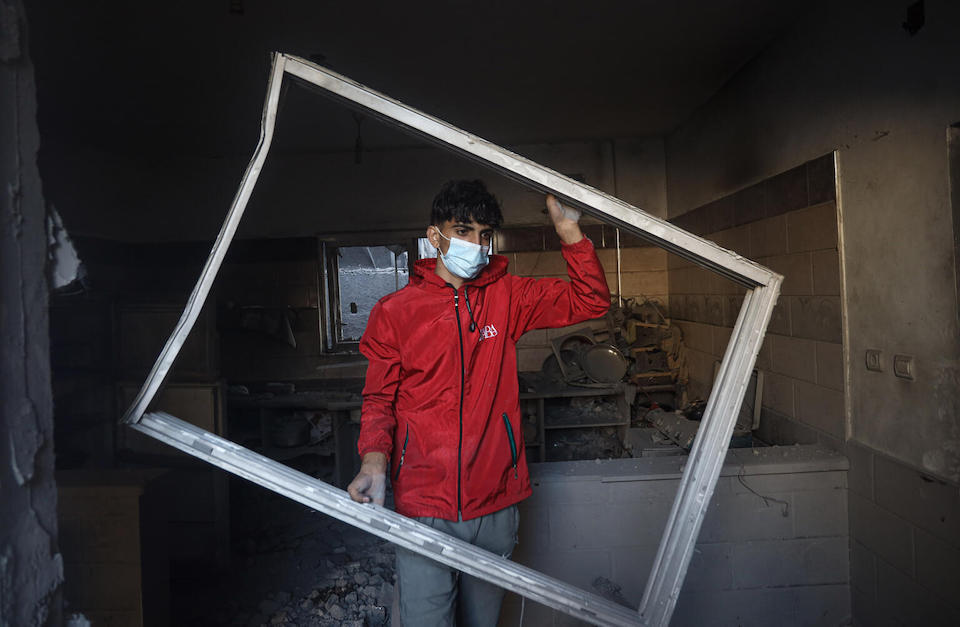
UNICEF will continue to put the needs of children first, and to provide them with the support they need to recover from the toxic stress they experience. What they need most is an end to the violence.
On behalf of all the children caught in this nightmare, we call on the world to do better.
"On behalf of all the children caught in this nightmare, we call on the world to do better," Russell told the Security Council. "Whether they are young people attending a music festival, or children going about their daily lives in Gaza, they all deserve peace. Children do not start conflicts, and they are powerless to stop them. They need all of us … to put their safety and security at the forefront of our efforts, and to imagine a future where children are healthy, safe, and educated. No child deserves any less."
UNICEF's response will continue to focus on meeting the needs of children currently facing an urgent and pressing need for protection and humanitarian assistance. Your contribution can make a difference. Please donate.


